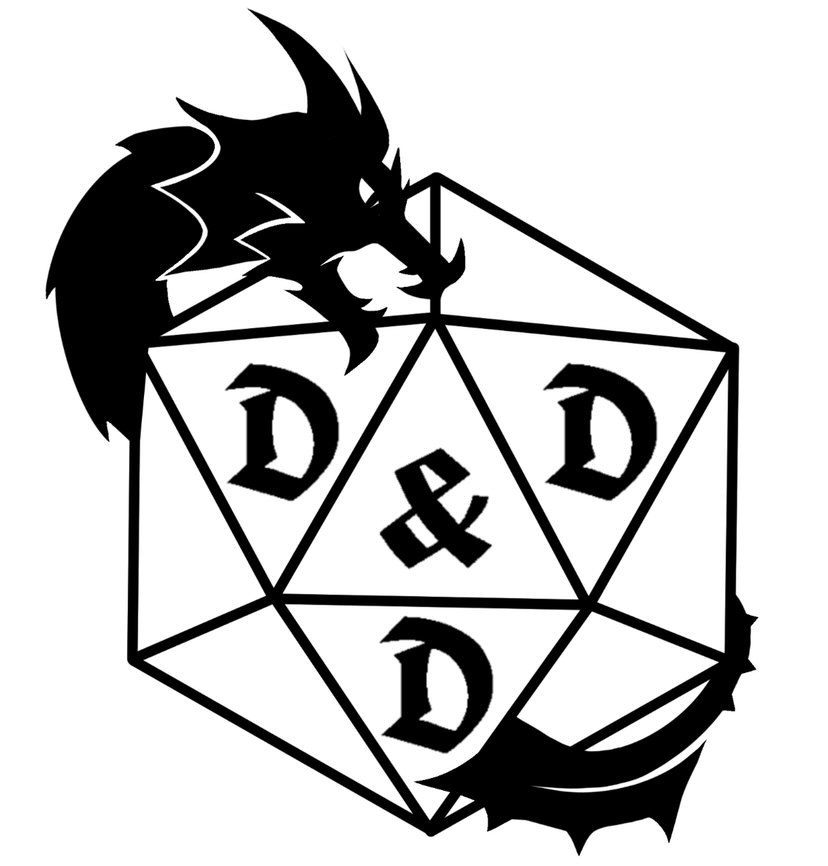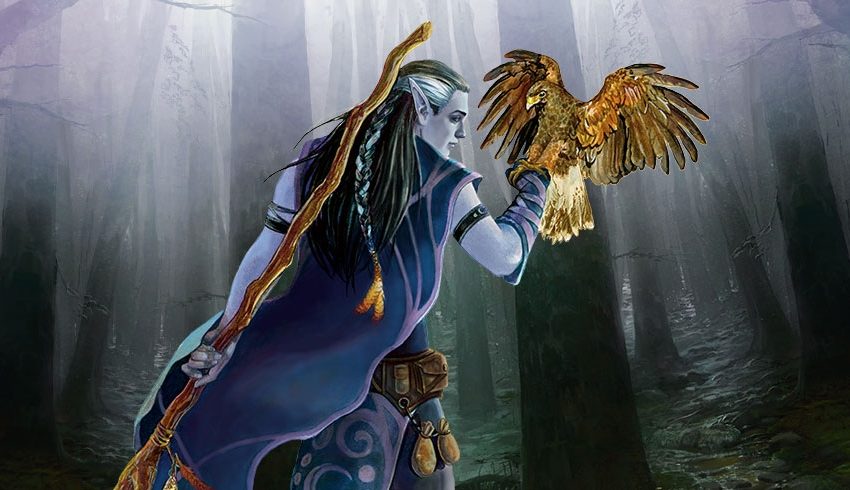2020 was not an easy year for many, especially those who play TTRPGs.
That being said, it was still one of the best years of my life largely because one of my nerd dreams finally came true: I started dating a girl who likes D&D.
- See also:
With government restrictions mandating a small social circle, it became difficult for friends to gather around a table to play board games. Many took to online, but it was a little too much for my archaic laptop (and, honestly, for myself) to figure out, so I sat idly penning oneshot ideas and possible ways to FINALLY finish off our two-year-but-probably-longer-now-as-I’ve-lost-count Curse of Strahd campaign.
Enter Hannah into my bubble. Spending so much time together, she suggested something a bit more engaging than yet another movie. So, with a well-altered “The Wild Sheep Chase” we kicked off a kind of Splinter Cell-style stealth game as she puppeted her 3rd-level Moon Druid, Wealtheow. Classically, it turned into a two-parter with a greater heist, which fueled a third session featuring an assassination attempt on the road to Waterdeep. Aaaand now we’re playing Dragon Heist.
Safe to say, one player games are snappy.
Because of how difficult (and technically illegal) it can be to get together with your large playgroup during the pandemic, here are some tips for those who want to start a game with a single PC.
Traits, Ideals, Bonds, and Flaws
Those four little boxes at the top right of a player’s CS should definitely be filled out. These details help the DM incorporate those things into the story to provide it greater depth. What do they want (Ideal)? Where do they come from and who do they know (Bonds)? Use their flaws against them as creatively — and oftentimes cruelly — as possible.
The player should have a journal
I looked over at Hannah’s character sheet after our second session. She had noted the damage she took, spells slots and wild shapes used, and currency spent and gained…. but that’s it. No names, locations, or notes of the like. I knew that simply wouldn’t do, so a quick trip to Chapters provided a forest green Leuchtturm notebook (befitting her druid) at the cost of $24. t was evidently worth it after just one session. Something about the journal-style of keeping a notebook gives way to better immersion and a richer game. How will I be able to weave hooks and red herrings if she can’t remember where she’s going, or why?
Make exploration prevalent
Whatever world(s) your player finds themselves in is sure to be expansive. Getting from point A to B takes time. Aside from high level spells and portals, there isn’t fast travel in D&D (unless you want there to be). Other modes of travel should also be available and dependent on the setting. Horses and carriages are sure to be ready, but what about ships, trains, or flying mounts? That’s how WoW did it. This gives the DM a bird’s-eye-view to detail the landscape. I’ll always remember the copper terrain of the Barrens, with its grassland plains and plateaus for the first time riding the Wyvern my Troll Shaman (name long since forgotten) purchased from the Skyway atop Orgrimmar. The details are crucial.
Flexible combat
While this is true for tables of any number, being able to adapt is probably the most important skill for a DM. Less abilities present means more creative thinking on the player to live within their character’s restrictions. This challenge is immensely rewarding. I learned a Druid that can turn into a spider is better than a Rogue at infiltrating a base real quick. Still, while having only one player slugging it out can be gritty and tense and so much fun, but it can also be deadly if over numbered — especially at lower levels that rely more on lucky roles than high proficiency bonuses. The CR system is far from my favourite mechanic, and it’s never something that’s influenced what the party will face. Sidekicks, allies, and hirelings can always be available to assist. Wealtheow saved a captive swashbuckler who helped aid her for the rest of the session. Or, if a fight proves too easy at the start, who’s to say backup isn’t just around the corner (or a quick Summoning away)? Many sources are available for modifying monsters. If anything, less characters makes improvising combat easier, if you ask me.
Role Play
With combat and exploration out of the way, let’s talk about the third tier of play: role-play. I would give the character an extra skill or two. Preferably at least one of those in the Charisma department, if they aren’t naturally adept. That being said, it could also be hilariously fun to play a blustering fool trying to do dealings with a High Lord or silver-tongued dragon? (here’s a post about playing an unskilled character.)
Adventuring is tough work, and characters need R&R
Sometimes you’re just chilling. Downtime activities are a bit easier to run with a single player — you’re not thumbnailing a dozen different pages to split off in three different directions (each with their own location, NPC’s, and descriptions) to tackle individual goals. What are they up to after they’ve completed a quest and are yet to pick up another? Do they need provisions or repairs? Is there a temple they may want to pray to? Are they in the possession of a book they want to read, or spells to transcribe? Who’s to say at level five wizard can just cast Fireball? What if it were a Wild Magic Sorcerer…
Let them drive the story
This above all else. With one player, you can directly make the kind of game world/style they want. A barbarian spelunking deep caves a la Diablo. A Bard tracking down an epic poem, in it a cipher that can be transcribed to stop a cult’s demonic ritual. A rogue entwined in a twisting mystery. Or a warlock, well, being a warlock. Do they want hack and slash, noir, epic fantasy, or some mix thereof? Hannah’s reaction to the Griffon Knights flying above the city was an emphatically simple, “Woah.” She’s a word nerd, and would enjoy language-based puzzles. So, I can incorporate math and science based problems to really challenge her (such as a pendulum room or a potion mixing sequence harkening to Snape’s potions at the end of The Philosopher’s Stone).
Games are quick
You can fit in a quick couple encounters in little time. Playing a game with one other person doesn’t require accommodating four other peoples’ schedules, which, as most people who endure the hobby know, can be the hardest thing about playing D&D.
Evil Campaign
Let them be the villain with a party of adventurers seeking to thwart their plans. I’ll drop the mic there.
So, in conclusion; ask your brother, your mom or dad, your roommate, significant other, coworker or friend, anyone within your bubble if they want to try playing D&D. You really only need one other person.
It’s safe to say, you probably aren’t doing much else Friday night.
- See also:
Check out more D&D tips and tricks at our D&D For Dummies series!

